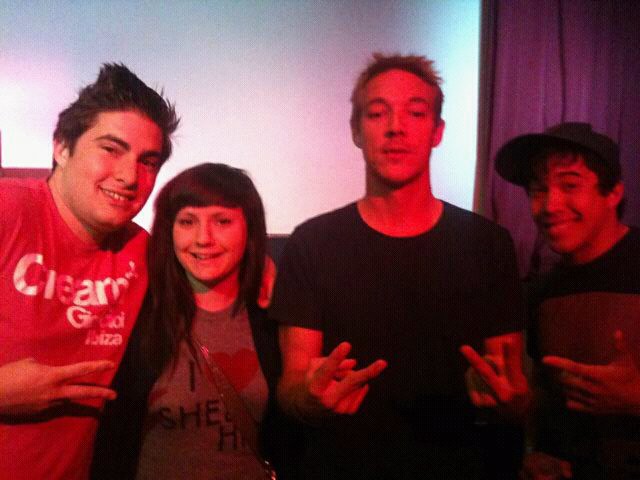
Wesley Pentz aka Diplo, has become a common house hold name in the music industry. From co-producing M.I.A.'s grammy nominated Paper Planes to working with artists from all over the world such as dancehall powerhouse Vybz Kartel, to the Atlanta bad boy and King of Crunk Lil Jon, to the Netherlands trance sensation Tiësto, Diplo has managed to work with just about everyone. Roughly 6 years ago Diplo received a cassette filled with music that was fresh, original, yet extremely familiar. What he heard on this cassette was so enticing it lead Diplo on a journey to Brazil which ultimately lead to Favela on Blast.
While many hear the words, Favela on Blast, I'm sure they imagine getting a 25 kill streak in Call of Duty: Modern Warfare 2 and calling in a nuclear strike on the Favela map; however, Favela on Blast is a 80 minute adventure and exploration of a music scene that is unfamiliar to the world. The sound that brought the Philly native to the southern part of South America into the ghettos and slums of Rio De Janeiro is called Funk Carioca or Baile Funk. Funk as the natives call it, derived from Miami Bass; however, Baile funk is (in my opinion) far greater than that. With portugese MCs laying down vocals (some songs having the raunchiest lyrics I have ever heard, sorry Ninjasonik I thought you guys had that award) and samples, breaks, and drum sounds what may have originally derived from Miami bass has far surpassed that
 A glimpse of the what the Favelas look like.
A glimpse of the what the Favelas look like. The tracks played in Favela on Blast are to say the least, insane. It's like what booty breaks was always meant to be; and while I may not be able to understand what the MCs are saying w/o the subtitles you don't need to know, the music moves you (it moved me so much I was almost daggering in Cinespace during the film).
Favela on Blast also explores some of the violent acts that take place in the Favelas. In particular the violence, disgust and hatred towards the Funk scene. Funk is seen as "ghetto music" and many Funk parties are often shut down. A close similarity to the early Los Angeles rave scene with raids and busts but instead of using batons and tear gas, authorities in the Favelas use guns and much stronger violence.
Favela On Blast is a must for any documentary fans or any fan of music. The Funk scene in the Favelas has more culture and substance than I'd argue any top 40 song being played in the US. The Funk music scene is not ran by record labels but the musicians themselves. They create the beats, they play the beats, they run the show. Favela on Blast has countless interviews and interactions with DJs and Mcs in the Funk scene. One segment even showed their own sound systems being built. These guys had their own F-1 sound system, no not the Function-1 sound system, I'm talking about a home made Favela-1 sound system.
Favela on Blast is a must see, and has the potential of becoming a new favorite and classic of mine. Anyways, I'm off to try and find some of this music, and something tells me that's going to be a lot easier said than done...

[from the left] My friend Brandon, Candace, DIPLO! and yours truly.